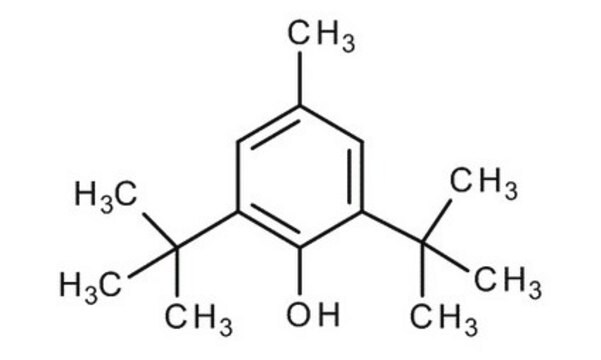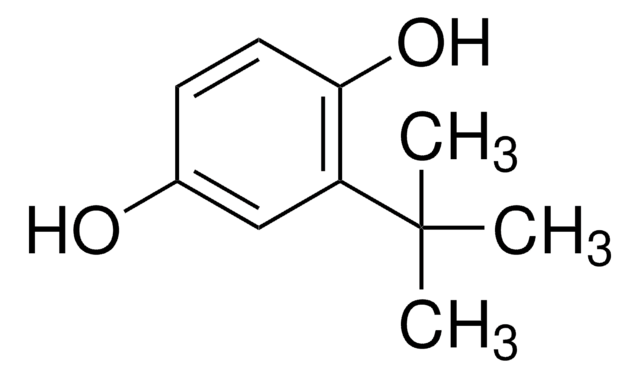1082708
USP
2,6-Di-tert-butyl-4-methylphenol
United States Pharmacopeia (USP) Reference Standard
Sinónimos:
2,6-Di-tert-butyl-4-methylphenol, 2,6-Di-tert-butyl-p-cresol, BHT, Butylated hydroxytoluene, Butylhydroxytoluene, DBPC
About This Item
Productos recomendados
grado
pharmaceutical primary standard
densidad de vapor
7.6 (vs air)
presión de vapor
<0.01 mmHg ( 20 °C)
familia API
butylated hydroxytoluene
temp. de autoignición
878 °F
fabricante / nombre comercial
USP
bp
265 °C (lit.)
mp
69-73 °C (lit.)
aplicaciones
pharmaceutical (small molecule)
Formato
neat
cadena SMILES
Cc1cc(c(O)c(c1)C(C)(C)C)C(C)(C)C
InChI
1S/C15H24O/c1-10-8-11(14(2,3)4)13(16)12(9-10)15(5,6)7/h8-9,16H,1-7H3
Clave InChI
NLZUEZXRPGMBCV-UHFFFAOYSA-N
¿Está buscando productos similares? Visita Guía de comparación de productos
Descripción general
Aplicación
- Dutasteride and Tamsulosin Hydrochloride Capsules
Nota de análisis
Otras notas
Producto relacionado
Palabra de señalización
Warning
Frases de peligro
Consejos de prudencia
Clasificaciones de peligro
Aquatic Acute 1 - Aquatic Chronic 1
Código de clase de almacenamiento
11 - Combustible Solids
Clase de riesgo para el agua (WGK)
WGK 2
Punto de inflamabilidad (°F)
260.6 °F - open cup
Punto de inflamabilidad (°C)
127 °C - open cup
Elija entre una de las versiones más recientes:
Certificados de análisis (COA)
Lo sentimos, en este momento no disponemos de COAs para este producto en línea.
Si necesita más asistencia, póngase en contacto con Atención al cliente
¿Ya tiene este producto?
Encuentre la documentación para los productos que ha comprado recientemente en la Biblioteca de documentos.
Los clientes también vieron
Nuestro equipo de científicos tiene experiencia en todas las áreas de investigación: Ciencias de la vida, Ciencia de los materiales, Síntesis química, Cromatografía, Analítica y muchas otras.
Póngase en contacto con el Servicio técnico







